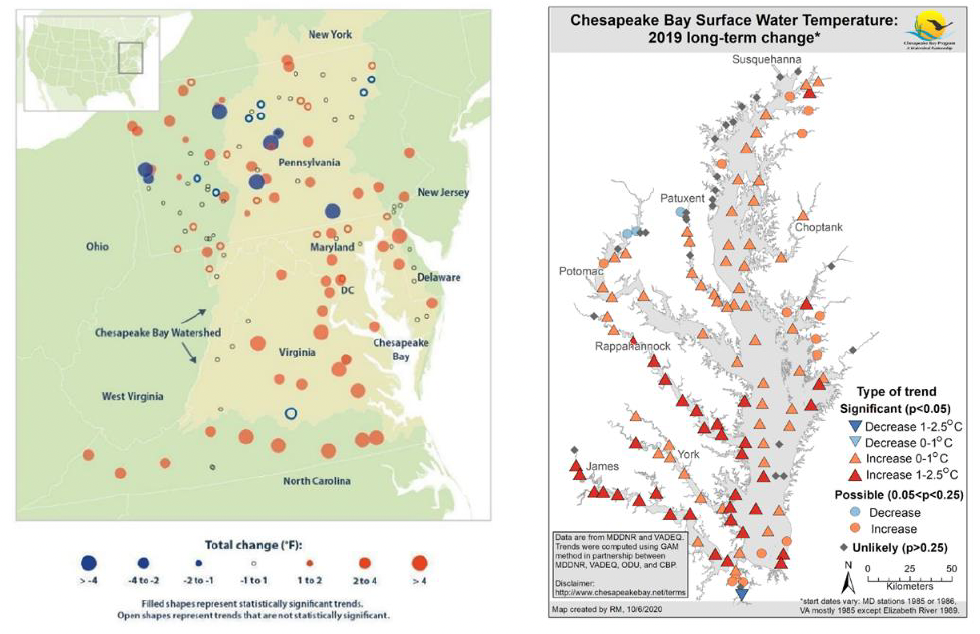
Left. Changes in Stream Water Temperatures in the Chesapeake Bay Region, 1960–2014. Data source: Jastram and Rice, 2015. <https://www.epa.gov/climate-indicators/climate-change-indicators-stream-temperature> Figure 2. Right. Long term flow-adjusted trends in bottom water temperatures at the Chesapeake Bay Mainstem and Tidal Tributary Water Quality Monitoring Program stations through 2019 from the Integrated Trends Analysis Team (ITAT). <https://www.chesapeakebay.net/who/group/integrated-trends-analysis-team>
As atmospheric temperatures go up, water temperatures have been increasing in the Chesapeake Bay tidal waters and in streams and rivers across the Bay’s watershed. Water temperatures are expected to continue rising, based on climate change projections.
Increases in water temperature have significant ecological implications for Bay and watershed natural resources and could undermine progress toward Chesapeake Bay Program (CBP) partnership goals for fisheries management, habitat restoration, water quality improvements, and protecting healthy watersheds. This STAC workshop examined current information on drivers and effects of rising water temperatures and sought answers to a critical question: what might the CBP partnership do now–within the scope of its current goals, policies and programs–to actively prevent, mitigate or adapt to some of the adverse consequences. Adapting to new water temperature conditions will have effects across the partnership.
Workshop preparation showed, from the outset, that the drivers, effects and likely management implications of water temperature increases are quite different between the Bay and the watershed. Therefore, both workshop days featured concurrent watershed and tidal sessions, and the findings and recommendations in the STAC report are organized in the same way.
